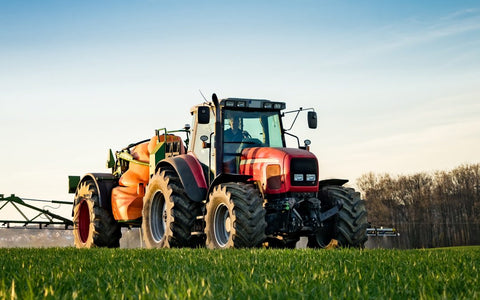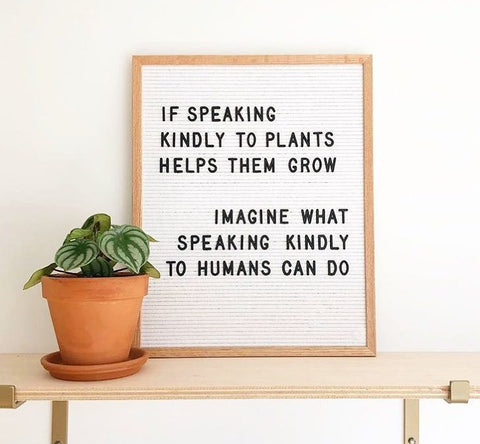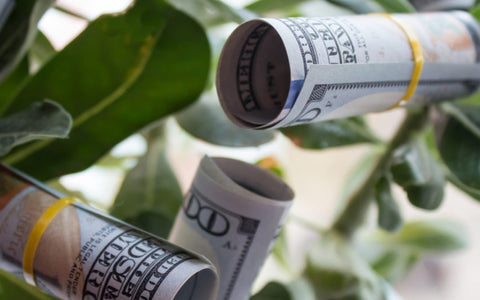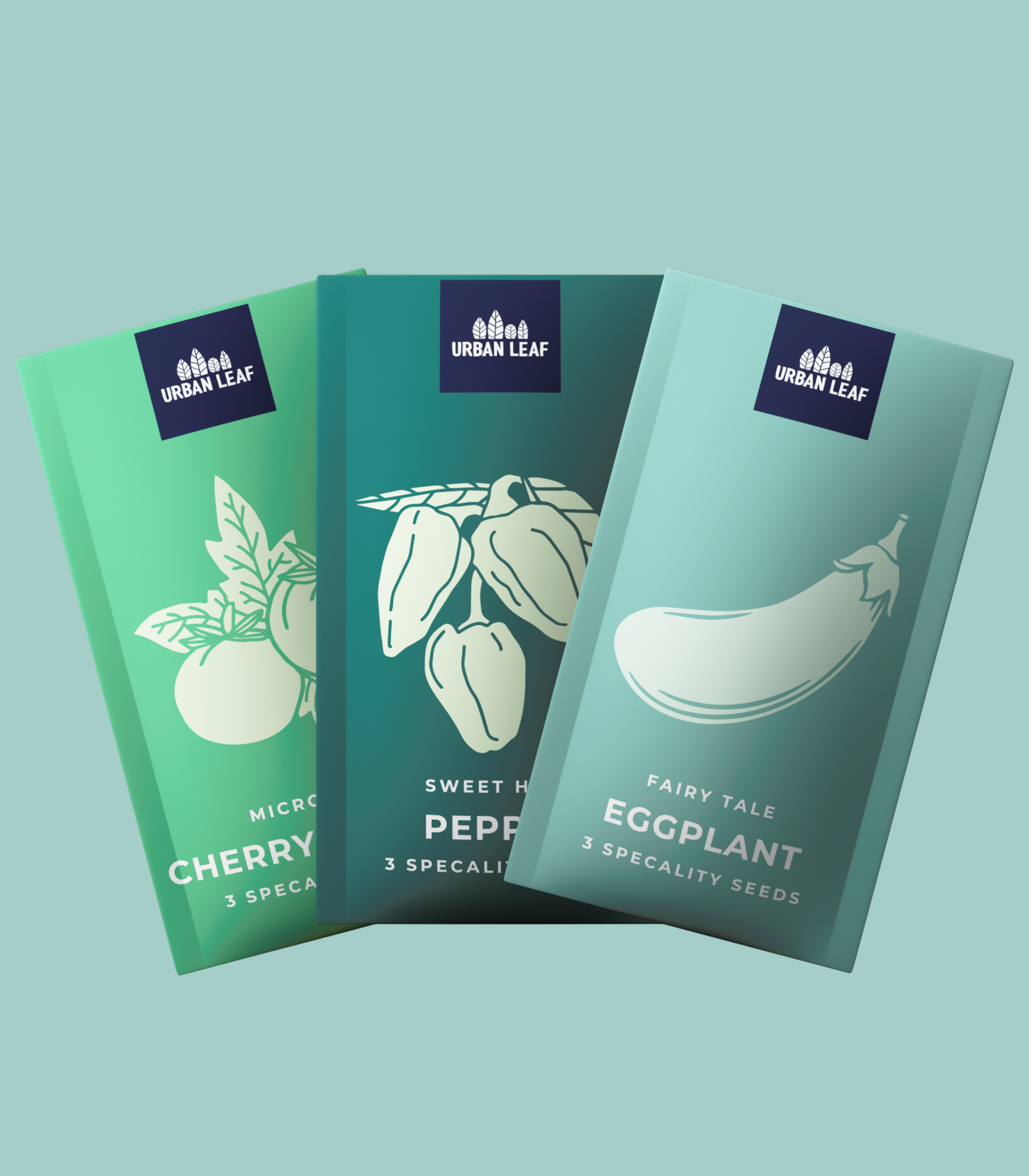“Is it Organic?” That’s one of the most common questions we get about our products – and rightly so. An interest in how one’s food is produced, and what goes into it, is often a strong motivator for growing your own. It’s an important topic and a big part of why Urban Leaf was formed.
The best answer we have to the organic question, however, is “No, it’s not USDA Certifiable Organic, but with all due respect, we think you’re asking the wrong question.” Allow us to explain…

Personally, we place very little weight on an ‘Organic’ label when making food choices. ‘Organic’ tells us nothing about a long list of issues that are becoming increasingly important to those of us wanting to make smart food choices. Yes, Organic might tell us that certain types of pesticides haven’t been used (which is important), but there’s more to the story than that!
As a food identification label, ‘Organic’ tells us very little about sustainability, nutritional content, or the social impact of our food choices. The ‘Organic’ label has, in many ways, become a food industry marketing gimmick, and that really frustrates us. Consumers’ desire to feel like they are doing the right thing, but confusion around what that actually means, has resulted in a food-marketers’ jackpot.
Here in New York, ‘Organic’ produce can command a price premium of as much as 100% over ‘conventional’ produce. But is it really worth the extra money?
What Does ‘Organic’ Mean?
The word organic is Greek in origin, coming from "organon," which comes from the same root as "erg," meaning “work.” It’s been used to describe food produced without the aid of chemical fertilizers or pesticides since the early 1940s.
Here in the US, the term has become synonymous with the USDA’s produce certification label that bears the same name. For those wanting to dive into the details, the USDA website contains a ton of information about what their Organic certification means, but from a consumer’s perspective, the important parts are:
- When packaged products indicate they are “made with organic …,” this means they contain at least 70% organically produced ingredients. Yep, it’s not 100%.
- At the core of organic farming is the principle of soil maintenance via crop rotation and composting. Rotating crops allows the soil to self-replenish its nutrients. The alternative is industrial monoculture farming (which represents over 90% of US farm production), where the same crops are planted year after year. Without crop rotation, the same plants extract the same nutrients from the soil continually, necessitating synthetic fertilizers. Where do synthetic fertilizers come from? The Oil & Gas industry. But that’s a story for another time…
- No prohibited substances have been applied for at least 3 years. Prohibited substances include most (but not all) synthetic fertilizers and pesticides.
What Organic Does NOT Mean
Although ‘Organic’ tells us something about the use of pesticides and fertilizers, there are many other factors important to our food choices that it tells us nothing about. This was a point well made by the Association for Vertical Farming and Columbia University in a 2016 report, which contained the following summary of various certification schemes and what they do/don’t cover.

Sure, like most of us, we would like to eat food that’s free from pesticides and chemicals — but that’s not the only thing we care about when making food choices. What about the environmental footprint and sustainability of our food source? The nutritional content? The social impact? The USDA’s ‘Organic’ label tells us very little about any of these topics.
Let’s take a look at why blindly following an ‘Organic’ label might lead us toward a poor food choice. We spoke to a sprout farmer recently at Union Square who is not organic because he treats his produce with chlorine before sprouting it. Why? Because there is an E. coli risk on the raw sprouts he sells. He could sell you ‘Organic’ sprouts if that’s what you really wanted, but he’s doing you a favor by not doing so.
Less than 5% of the produce sold at NYC’s Union Square market is certified organic. Many of the farmers we’ve spoken to there have indicated that getting the organic certification would mean inferior product quality. There would, for example, be more blotches and bumps on the apples. Consumers are generally unwilling to buy ‘ugly’ produce. So if we say we want organic but then decline to purchase the apple with bumps all over it, aren’t we contradicting ourselves?
Should You Be Eating Organic?
Organic food buyers come in many shapes and forms. Some people buy Organic for health reasons, others for environmental reasons. Others simply want to feel like they’re doing the right thing. Let’s take a closer look at each.

Healthy Realists
Health-conscious consumers generally care about the nutritional content of their food. Nutrients are the least stable part of our food. The moment we harvest a fruit or vegetable, it starts to decompose and lose its nutritional value. Of course, cold storage and treating food with ethylene help slow this process, but research has shown that produce stored in a refrigerated environment for just one week loses between 15% (green peas) and 77% (green beans) of its Vitamin C content. Much of the other nutritional content is similarly compromised.
This loss of nutritional content is a problem once you start to appreciate the seasonality of food. Particularly during the winter, much of the ‘fresh’ produce we eat here in the Northeast is shipped in from California or Mexico. A tomato harvested today in California will spend at least 4–5 days in the back of a truck on its way to New York. It will then spend perhaps 2–3 days on the supermarket shelf before you buy it. The best-case scenario is that ‘fresh’ produce from a supermarket is a week old during winter, but in some cases, it’s been in storage for up to a year.
Even if we put the transport and nutritional degradation aside, there is still plenty of evidence to suggest that Organic food contains no more minerals or nutrients than non-organic food, as summarized in this 2012 study.
So if health and nutrition are important to us, should we be buying an Organic apple from Whole Foods that’s been imported from New Zealand (yes, it happens), or a fresh non-Organic apple from NY state with the bulk of its nutritional value still intact?
Enlightened Environmentalists
It would seem hard to dispute that the avoidance of pesticides and chemicals is a positive, but the environmental impact of our food production does not end there. Consider a soil-based organic farm in California and a local vertical hydroponic farm as potential alternatives for the supply of food during winter here in New York.
- Both farms will likely be pesticide-free. The ‘Organic’ label tells us nothing about this.
- One farm (the soil-based one) can require up to 10x more land to produce my food. That’s land that had to be cleared and would have otherwise had natural vegetation. Does buying organic mean I am supporting land clearing?
- Bringing the lettuce from California involves over 3,000 miles of trucking. I might be able to ride my bicycle over to pick up the other one. Does buying organic mean I am supporting fossil fuel consumption?
It’s difficult to say whether buying Organic is actually better or worse for the environment on a net basis, but we suspect the answer probably changes based on the time of the year, local availability, and the type of produce in question.
The True Believers
The True Believers are prime victims of ‘Organic’ propaganda. The fact that ‘Organic’ is being used as a marketing tool on products such as the canned tomato and pumpkin below shows the extent to which unknowing consumers are being misled.


Canning exposes fruits and vegetables to high temperatures, which degrade nutrients and can cause leaching into the canning medium. Research has shown that Vitamin C decreases by 10–90% during the canning of various vegetables. Don’t even get us started on the environmental impact of the can (smelted metal), packaging, processing, storage, distribution, or the fact that it was shipped to NY all the way from Oregon.
Conclusion
The point is that making food choices is not as simple as Organic = good and non-Organic = bad. It’s more nuanced than that.
Like we said at the beginning, when you ask “Is it Organic?” our best answer remains “No, the USDA would not classify this as Organic, but with all due respect, we think you’re asking the wrong question.” Hopefully, our answer makes a little more sense now?
With the benefit of having read this article, you might instead ask, “Is it pesticide-free, nutrient-dense, does it offer peak flavor and freshness, is it packaging-free, is it low on food miles, is it sustainable and better for both my own health and that of the planet?” … And if you did, our answer would be a resounding “YES!”
We’d love to hear YOUR thoughts about organic. We check comments daily, so feel free to leave yours below!








There are no comments for this article. Be the first one to leave a message!